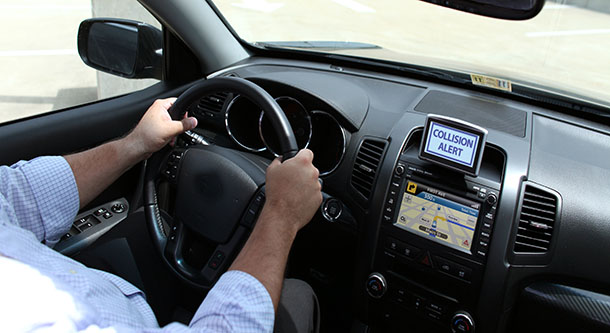
WASHINGTON, D.C. (Jan. 16, 2014) – About 1-in-5 new cars sold this year will collect and transmit data outside the vehicle to improve safety and convenience for drivers, as highlighted at the Consumer Electronics Show last week. AAA urges companies offering these services to protect drivers by adopting its new “Consumer Rights for Car Data.” AAA formally addressed this issue as part of public comments to the Federal Trade Commission last week.
“New car technologies are changing the way we drive by making the experience both easier and safer than ever before,” said Bob Darbelnet, President and CEO of AAA. “Within a decade the majority of cars on the road will be able to identify problems before breakdowns occur, reduce crashes and help drivers save time and money.”
As consumers begin using these new services, AAA urges businesses, the government and other organizations to help ensure the rights of transparency, choice and security. “Many connected car features are made possible through the collection of large amounts of potentially sensitive data from drivers,” continued Darbelnet. “Companies collecting, using and sharing data from cars should do everything possible to protect consumer rights as they offer these exciting technologies.”
AAA’s Consumer Rights for Car Data
- Transparency – Consumers have a right to clearly understand what information is being collected from their vehicle and how it is being used. Businesses and the government should be transparent about the collection and use of vehicle data.
- Choice– Consumers have a right to decide with whom to share their data and for what purpose. This includes ongoing monitoring of vehicle systems, repair and any data of the vehicle owner’s choice. Customers should not be forced to relinquish control as a condition of purchasing or leasing a vehicle or of receiving a connected-vehicle service.
- Security– Consumers have a right to expect that connected-vehicle manufacturers and service providers will use reasonable measures to protect vehicle data systems and services against unauthorized access and misuse.
AAA last week provided specific recommendations to the FTC in response to the commission’s request for public comments, which followed up on the agency’s “Internet of Things” workshop. The workshop examined the consumer privacy and security issues posed by the growing connectivity of consumer devices, such as cars, appliances and medical devices.
Every automaker selling cars in North America is offering connected features in 2014. Connected cars promise to offer consumers a wide range of benefits including:
- Crash Response: Connected cars can automatically send real-time data about a crash along with vehicle location to emergency teams. This can save lives by accelerating emergency response.
- Car Problem Diagnosis: Connected cars are capable of generating prognostic data that can predict a problem before a part even fails, which would prevent the inconvenience of a breakdown and help consumers better manage the timing of vehicle care. Preventative maintenance promises to help reduce repair and warranty costs.
- Convenience Services: The ability to remotely access a car makes possible services such as remote door unlock, find my vehicle and stolen vehicle recovery.
- Integrated Navigation: Connected cars can integrate GPS with online services to respond to driver preferences, routing, fuel availability and pricing, traffic alerts, points of interest, etc.
- Traffic Management: Connected car technology can provide transportation agencies with improved real-time traffic, transit, and parking data, making it easier to manage transportation systems for reduced traffic and congestion.
- Infotainment: Connected cars can provide online, in-vehicle entertainment options that provide streaming music and information through the dashboard. AAA has called for limiting certain features while driving to prevent distractions.
- Discounts and promotional offerings: Companies can provide insurance or location-based discounts and promotional offerings.
- Enhanced Safety: Pilot programs for vehicle-to-vehicle (or “V2V”) and vehicle-to-infrastructure (“V2I”) communications are underway that will warn drivers of potential collisions, dangerous road conditions and other impediments to safe travel. A range of crash prevention technologies integrated with connected communications such as intersection assistance likely will reduce the number of crashes in the coming years.
As North America’s largest motoring and leisure travel organization, AAA provides more than 54 million members with travel, insurance, financial and automotive-related services. Since its founding in 1902, the not-for-profit, fully tax-paying AAA has been a leader and advocate for the safety and security of all travelers. AAA clubs can be visited on the Internet at AAA.com.
